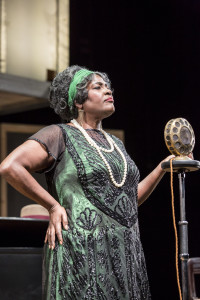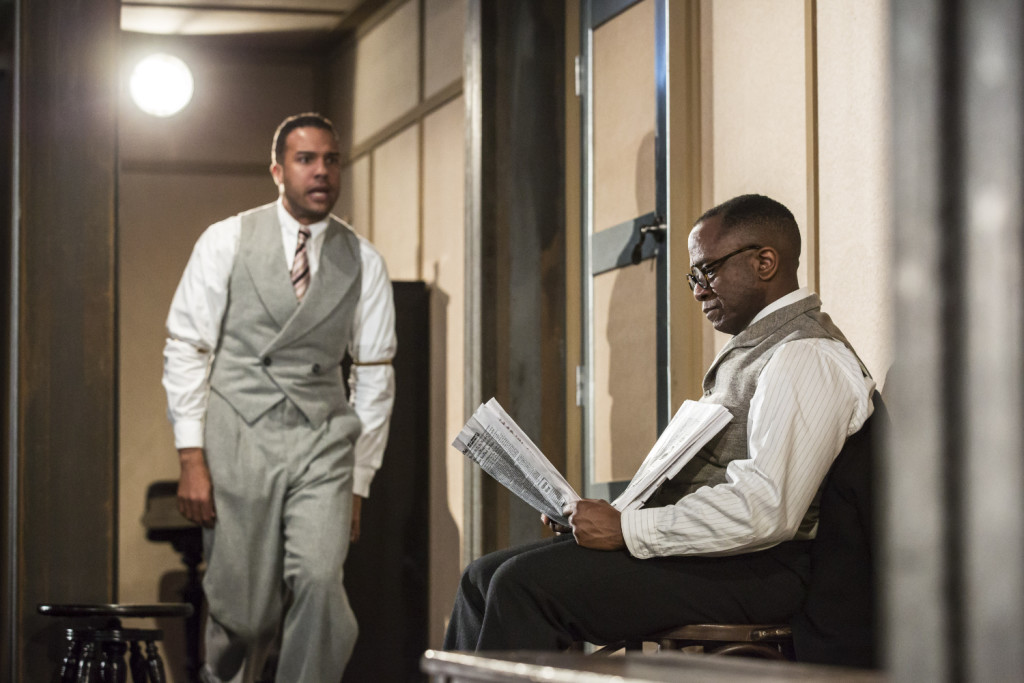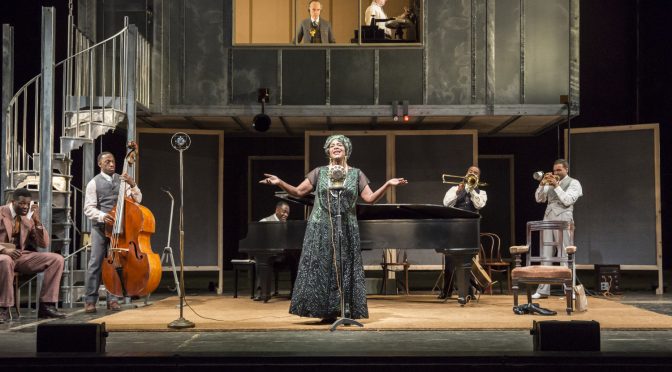Part of August Wilson’s decathlon of plays about race relations in America, this 1982 work is set in a 1920s Chicago recording studio. While the titular diva, known as the mother of the blues, fights with her manager and producer over adapting her signature song into a modern jazz style, her backing band’s members reveal personal and political tensions of their own.
It could be heavy stuff. Yet, by setting up plenty of laughs and endearing characters, Wilson’s play is hugely entertaining. Most impressively, by showing how racism infuses – indeed poisons – lives, the politics here are as emotive as they are educational. The segregated society the play is based in takes some getting your head around – the gap between races so fundamental – but showing how the players take it for granted has a humbling effect.
 If the play has a failing, it’s that you can’t – and don’t – get enough of Ma Rainey. A flaw compounded by the fact that the excellent Sharon D Clarke takes the role. Written relatively thinly, the motivation behind her often-amusing artistic temperament is portrayed confidently and certainly makes you think. But with a voice this strong, it seems downright foolish not to get more music out of Clarke.
If the play has a failing, it’s that you can’t – and don’t – get enough of Ma Rainey. A flaw compounded by the fact that the excellent Sharon D Clarke takes the role. Written relatively thinly, the motivation behind her often-amusing artistic temperament is portrayed confidently and certainly makes you think. But with a voice this strong, it seems downright foolish not to get more music out of Clarke.
Impeccably directed by Dominic Cooke, Ultz’s design creates a sound booth aloft and a basement room that the band rehearses in. The feeling is sparse, almost wasteful given the size of the Lyttleton stage, but the claustrophobia is fitting enough. In a narrow space a quartet of excellent performers carefully reveal frequently harrowing stories from the boys in the band.

Giles Terera and Clint Dyer make a great double act as long-standing friends who play together. O-T Fagbenle has the star part as Levee, a talented, troubled and ambitious youngster, who embodies the power of new music – jazz. A tough call, we have to take Levee seriously while laughing at him quite a bit and Fagbenle manages this balance well, skillfully revealing the character’s tragic background. Lucian Msamati’s philosophising Toledo wants to open the eyes of his illiterate colleagues. Exquisitely delivering the most didactic of lines, he deserves our applause – our affection for him paying off with the play’s startling, tragic, conclusion. The impact and legacy of racism is clear here, making the play still frighteningly apposite.
Until 18 May 2016
Photos by Johan Persson

